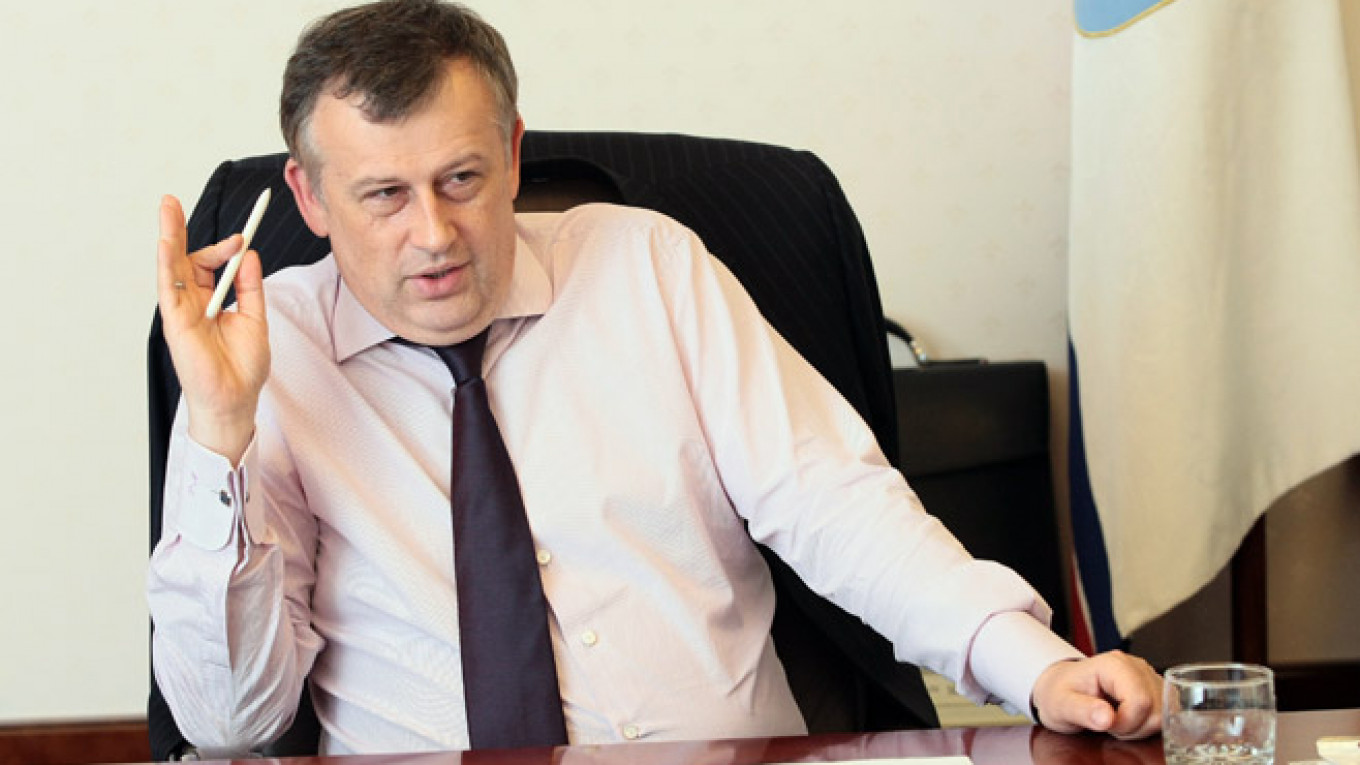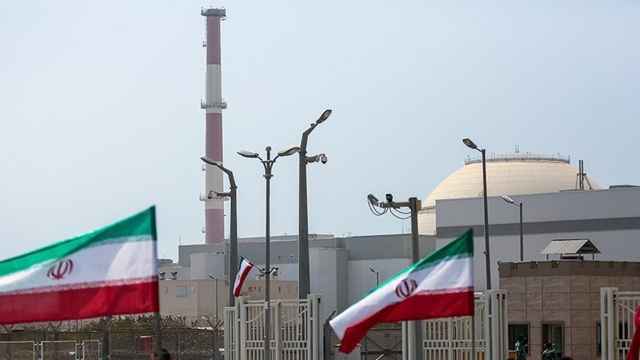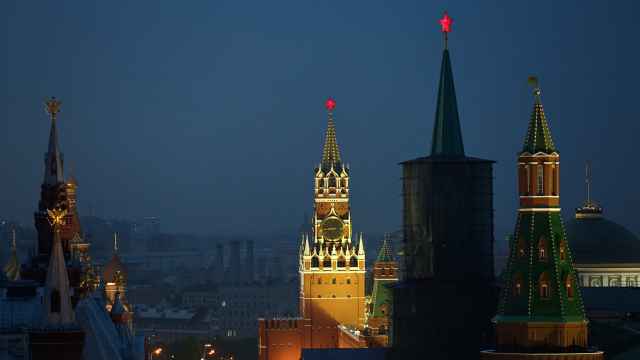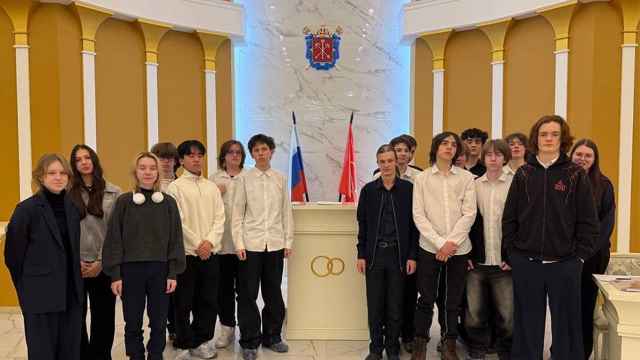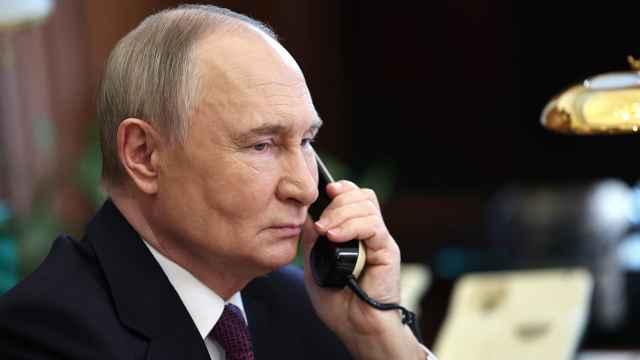President Vladimir Putin has accepted the resignations of a string of regional governors this week, a move some analysts have said could increase their chances of being re-elected amid dire forecasts about the Russian economy.
Since Tuesday, Putin has agreed that the governors of the Irkutsk, Omsk, Kamchatka and Leningrad regions will resign but remain acting governors until early gubernatorial elections are held in September. One of the governors, Sergei Yeroshchenko of the Irkutsk region, who had two years left on his term, told Putin on Wednesday that he wanted to have more time to improve his region's infrastructure problems, according to the Kremlin's official website — time that getting re-elected for another five-year term in September would grant him.
Independent political analysts view governors' resignations as a self-serving tactic to secure re-election before popular discontent swells as the state of the already struggling economy further deteriorates. The sharp devaluation of the ruble in 2014 and the current economic slowdown have been a trying period for Russian regional governors, who have had to please both the population and the Kremlin with dwindling resources.
"The economic crisis is ongoing, there are growing issues with unemployment and the rising price of food. These are all issues regional governors have to face," said Alexei Makarkin, deputy director of the Moscow-based Center of Political Technologies think tank. "Their resignations signal that they are seeking re-election before these issues become even more problematic."
The International Monetary Fund (IMF) revised downward its January forecast last month, predicting that falling oil prices and geopolitical tensions would cause the Russian economy to shrink by 3.8 percent this year. The IMF also predicted that economic growth would remain negative in 2016.
Pro-Kremlin commentator Alexei Mukhin, who heads the Center for Political Information consultancy, said that governors feel obliged to force early elections in order to gain time to fulfill Putin's so-called May Orders, a series of electoral promises he made in the run-up to his re-election in 2012.
The May Orders outline a series of long-term economic and social policy objectives, with deadlines for their realization. The objectives include the creation of 25 million jobs in the high-tech sector and the modernization of 70 percent of the country's military hardware by 2020.
Some governors, including of the Orenburg and Nizhny Novgorod regions, called early elections last year as the West slapped Russia with economic sanctions over its annexation of Crimea. Makarkin said the logic of the governors who called early elections last year was the same of those whose resignations were approved this month: get re-elected before the economy sours.
Critics of this tactic have said that it does not provide the governors' opponents with enough time to prepare their election campaign and unfairly increases the incumbent's chances of being re-elected.
In the early gubernatorial elections called last year, the acting regional governors who had forced an early ballot were all re-elected in their respective regions, Russian media reported.
Putin abolished direct gubernatorial elections in 2004, claiming that the Kremlin's appointment of regional heads would ensure stability. Direct gubernatorial elections were only returned in 2012 after a wave of mass anti-government protests.
Contact the author at [email protected]
A Message from The Moscow Times:
Dear readers,
We are facing unprecedented challenges. Russia's Prosecutor General's Office has designated The Moscow Times as an "undesirable" organization, criminalizing our work and putting our staff at risk of prosecution. This follows our earlier unjust labeling as a "foreign agent."
These actions are direct attempts to silence independent journalism in Russia. The authorities claim our work "discredits the decisions of the Russian leadership." We see things differently: we strive to provide accurate, unbiased reporting on Russia.
We, the journalists of The Moscow Times, refuse to be silenced. But to continue our work, we need your help.
Your support, no matter how small, makes a world of difference. If you can, please support us monthly starting from just $2. It's quick to set up, and every contribution makes a significant impact.
By supporting The Moscow Times, you're defending open, independent journalism in the face of repression. Thank you for standing with us.
Remind me later.


